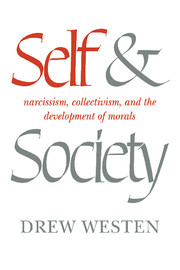6 - Societal structure and dynamics
Published online by Cambridge University Press: 11 November 2009
Summary
The first requirement of any social theory is that it elucidate the dynamic forces which energize a society and motivate its individual actors. For Marx, these forces are competing class interests, though why anyone desires anything other than food is unclear in his system because it lacks a systematic psychology. Marx himself astutely argued against the imputation of universality to historically specific valuations of various social goods; one is left with a theory that sees classes as aggregates pursuing what are ambiguously called their “interests.” The dynamic behind social life for Durkheim and most of the functionalists is the quest for solidarity, which is actualized in such institutions and practices as religion and ritual. For Weber, people pursue power, status, wealth, and other unspecified values.
Early evolutionists were less concerned with dynamic forces than with descriptive evolutionary schemes, though one could, with ahistorical hindsight, view natural selection as the dynamic process responsible for societal evolution. The culture pattern theorists argued for a consistency principle in culture itself which rearticulates a diffused cultural element in order to assimilate it into the cultural gestalt. Structuralists tend to avoid dynamics and focus instead on cultural cognition, though this is an oversimplification, particularly for anthropologists, like Victor Turner, who wed structural, symbolic, and functional analysis. Turner, in analyzing the Isoma ritual of the Ndembu, points out that the symbols and their relations in this fertility ritual are not simply “a set of cognitive classifications for ordering the Ndembu universe. They are also, and perhaps more importantly, a set of evocative devices for rousing, channeling, and domesticating powerful emotions …” (1969, pp.42–3).
- Type
- Chapter
- Information
- Self and SocietyNarcissism, Collectivism, and the Development of Morals, pp. 216 - 240Publisher: Cambridge University PressPrint publication year: 1985



